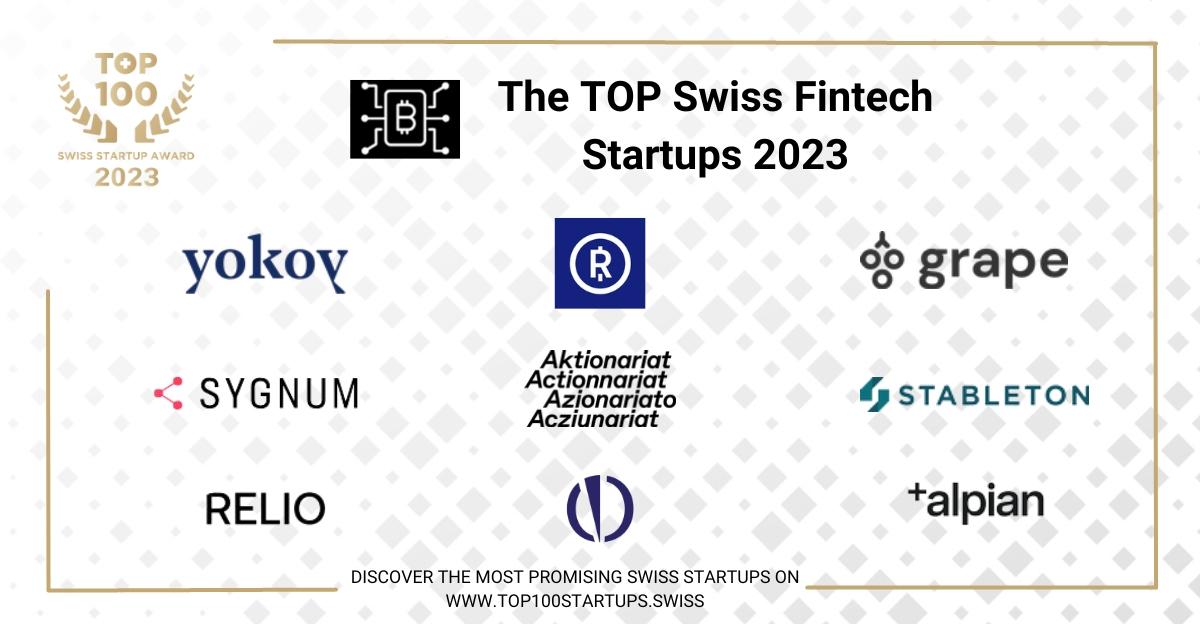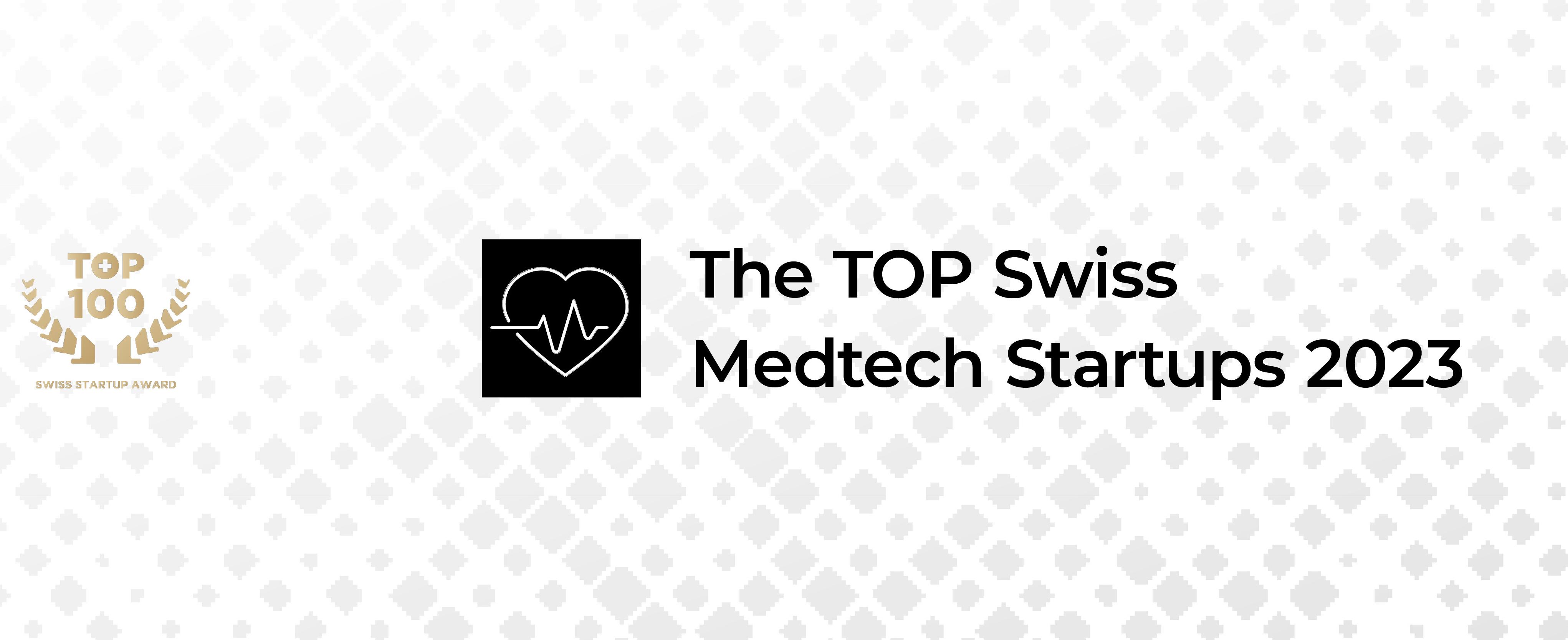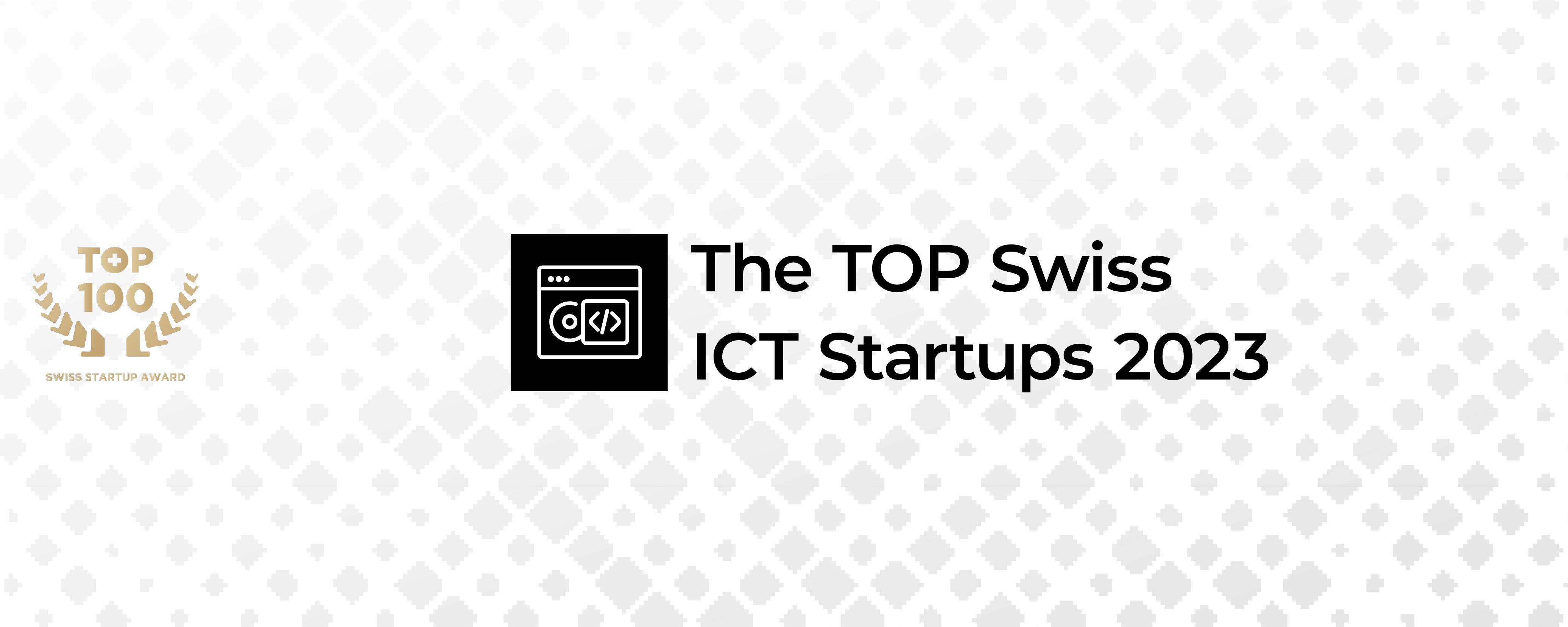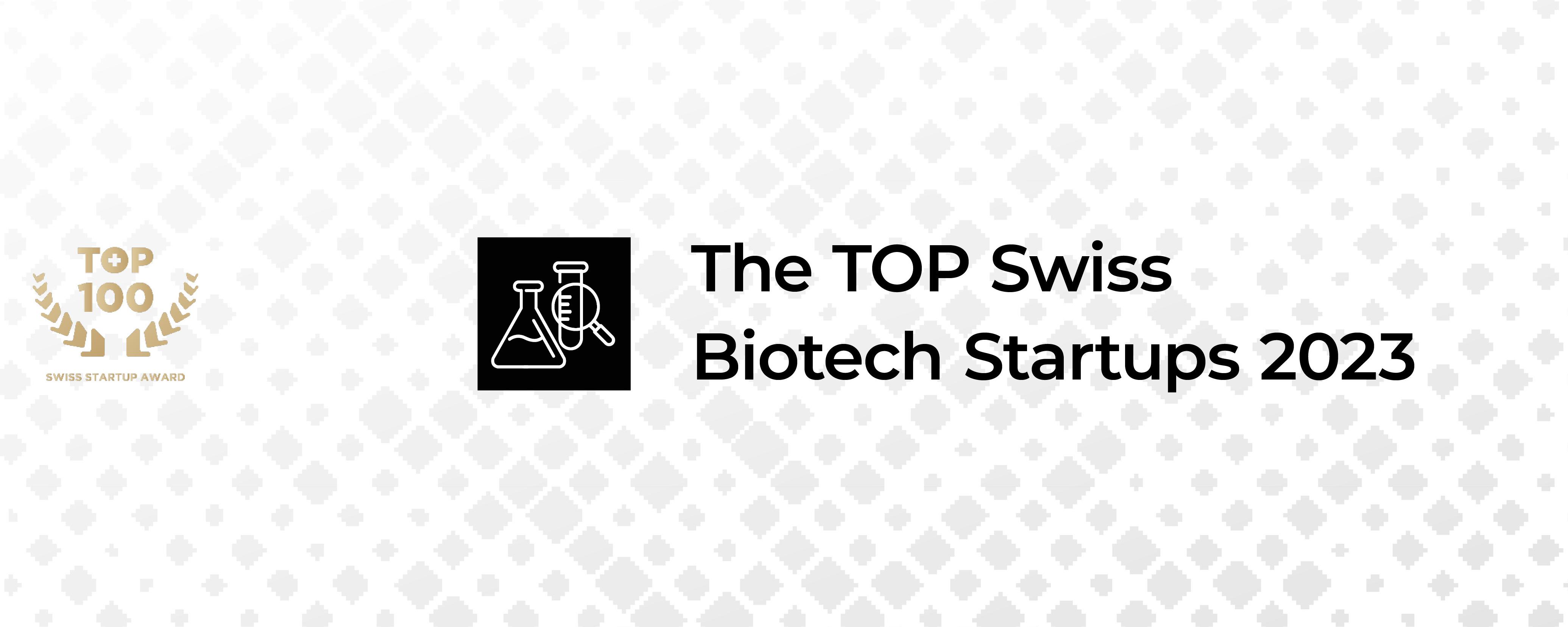The 9 most promising Swiss Fintech startups of 2023, according to investors
The 100 most innovative and promising Swiss startups are picked by a panel of 100 leading investors and industry experts and are revealed at the TOP 100 Swiss S...
Read more16.10.2023 08:30 Rita Longobardi

The 100 most innovative and promising Swiss startups are picked by a panel of 100 leading investors and industry experts and are revealed at the TOP 100 Swiss Startup Award. This year, Engineering has 12 representative startups in the TOP 100 (including 1 in the TOP 10). Their innovations aim to improve efficiency and create new opportunities for economic growth. From 3D printing, chip cooling, micro capsules, and smart materials to exoskeletons, these startups are on the frontline of technological advancements.
 The annual ranking of the TOP 100 Swiss Startups has become a benchmark in Switzerland’s startup ecosystem—and beyond. Every year, a panel of 100 leading investors and startup experts chooses the 100 most innovative and promising Swiss startups. Each jury member nominates 10 Swiss startups that are fewer than five years old and show the greatest commercial potential. The first-placed company receives 10 points, the second nine points, and so on. The individual rankings are compiled to generate the final TOP 100 Swiss Startup Award ranking. In parallel, the TOP 100 Public Voting allows everyone with a LinkedIn account to cast one vote and choose the most promising startup per vertical.
The annual ranking of the TOP 100 Swiss Startups has become a benchmark in Switzerland’s startup ecosystem—and beyond. Every year, a panel of 100 leading investors and startup experts chooses the 100 most innovative and promising Swiss startups. Each jury member nominates 10 Swiss startups that are fewer than five years old and show the greatest commercial potential. The first-placed company receives 10 points, the second nine points, and so on. The individual rankings are compiled to generate the final TOP 100 Swiss Startup Award ranking. In parallel, the TOP 100 Public Voting allows everyone with a LinkedIn account to cast one vote and choose the most promising startup per vertical.
Discover the 12 Engineering startups that impressed the TOP 100 Jury and the public the most with their innovative solutions.

9T Labs, #8
Last autumn, the Basel-based luxury watch manufacturer Oris launched the Coulson model. The distinguishing feature of the limited edition is that the watch case is made of carbon fiber-reinforced plastic, also called carbon, and was printed by 9T Labs in Zurich-Altstetten. Oris benefited from the advantages of carbon printing in several ways: it increases the creative freedom of the designers and enables the production of light but extremely robust components. The Coulson model also represented a breakthrough for 9T Labs: for the first time, a customer had produced parts for a consumer product using 9T Labs’ additive fusion technology (ATF).
Corintis, #15
Silicon computing chips are simultaneously becoming smaller and more powerful. Conversely, this means more heat is generated per square meter of surface area. EPFL startup Corintis has developed a cooling system that can be applied to even the smallest chip. Through a three-dimensional network with microscopically small lines, the waste heat is minimised directly at the point of generation, thus improving the energy efficiency of the cooling process by a factor of 50.
Microcaps, #23
Microcaps’ capsule technology can precisely adjust the release of active ingredients. The application field is wide-ranging among the cosmetic, pharmaceutical and food sectors. For example, the ETH spin-off founded in 2019 recently worked with top chefs to develop a seaweed capsule as a caviar substitute.
Almer Technologies, #28
So far and yet so close: the augmented reality glasses from Almer Technologies in Bern enable direct communication between experts and workers worldwide. The glasses are equipped with cameras that allow experts to observe and assist workers or specialists in real time. This enables damage assessment, training, medical support and much more from a distance. After a test phase, Almer started the first series production at the end of 2022.
matriQ, #60
St. Gallen startup matriQ has developed a ‘watermark for plastic’ that can be used to ensure the traceability of plastic products in the medtech, automotive and industrial sectors. The DM-date allows a plastics producer to provide its products with an exact date and time stamp during injection moulding. The Eastern Swiss University of Applied Sciences spin-off, founded in 2019, secured CHF 4.2 million in a late seed round last year.
Lumiphase, #70
The spin-off from the IBM Research Center in Rüschlikon produces fiber-optic chips that increase the data throughput in fiber-optic cables and are intended to help manage the worldwide growing data traffic. Its globally unique technology applies a barium titanate crystal only a few nanometers thick to a silicon substrate. Lumiphase has almost 50 employees.
dimpora, #75
ETH spin-off Dimpora, founded in 2019, develops textile high-performance membranes without fully fluorinated plastics (PFA). The material is completely microporous, highly breathable, waterproof, and recyclable. Co-founders Anna Beltzung and Mario Stucki say their aim is to make the outdoor clothing industry recyclable.
Impossible Materials, #78 + Public Voting winner
In the EU, the use of titanium dioxide (E 171) as food coloring has been banned since 2022. The cellulose-based white pigment from Impossible Materials is an alternative. In April, the Fribourg-based startup raised seed financing of USD 3.8 million. The capital will be used to build a pilot plant in Marly.
Isochronic, #93
The Vaud startup develops pick-and-place robots that are able to transport several parts at the same time, thus significantly increasing throughput compared with existing solutions. In addition to the packaging and recycling industry, the target market is primarily the manufacturing industry with its automated production lines.
Auxivo, #94
The ETH Zurich spin-off’s exoskeletons support employees in various occupational fields from logistics to care when performing physically heavy work related to lifting and carrying. Migros Genossenschaft Ostschweiz has already implemented the exoskeletons and further models are being developed in regular exchange with the scientific community.
Aeler Technologies, #98
Shipping containers are out of date:
the rusty, hot metal boxes meet customer requirements and environmental standards less and less. The Lausanne-based startup develops intelligent shipping containers that can drastically reduce operating costs and reduce CO2 emissions by 20%. Aeler introduced its first next-generation container last year, and this spring it completed an oversubscribed pre-series A round of CHF 7 million.
Terra Quantum, #100
In June, Terra Quantum set a world record: for the first time in history, it succeeded in sending quantum-encrypted data over a distance of more than 1,000 km. The team from eastern Switzerland created the basis for data communication in which the interception of transmitted data is physically impossible. The start-up offers its customers ‘quantum computing as a service’ and has so far raised about USD 90 million in investor funding.
The 13th edition of the TOP 100 Swiss Startup Award 2023 celebrated Switzerland's best startups. Discover the cleantech startups and all the details in the TOP 100 Swiss Startup Magazine 2023 or follow the hashtag #TOP100SSU on Linkedin, Twitter, and Instagram for impressions.

The 100 most innovative and promising Swiss startups are picked by a panel of 100 leading investors and industry experts and are revealed at the TOP 100 Swiss S...
Read more
The 100 most innovative and promising Swiss startups are picked by a panel of 100 leading investors and industry experts and are revealed at the TOP 100 Swiss S...
Read more
The 100 most innovative and promising Swiss startups are picked by a panel of 100 leading investors and industry experts and are revealed at the TOP 100 Swiss S...
Read more
The 100 most innovative and promising Swiss startups are picked by a panel of 100 leading investors and industry experts and are revealed at the TOP 100 Swiss S...
Read more
You have questions about Top100 or would like to exchange ideas with us? Feel free to contact me.
Jordi Montserrat Co-founder and managing partner jordi.montserrat@venturelab.swiss Jordi Montserrat on LinkedIn